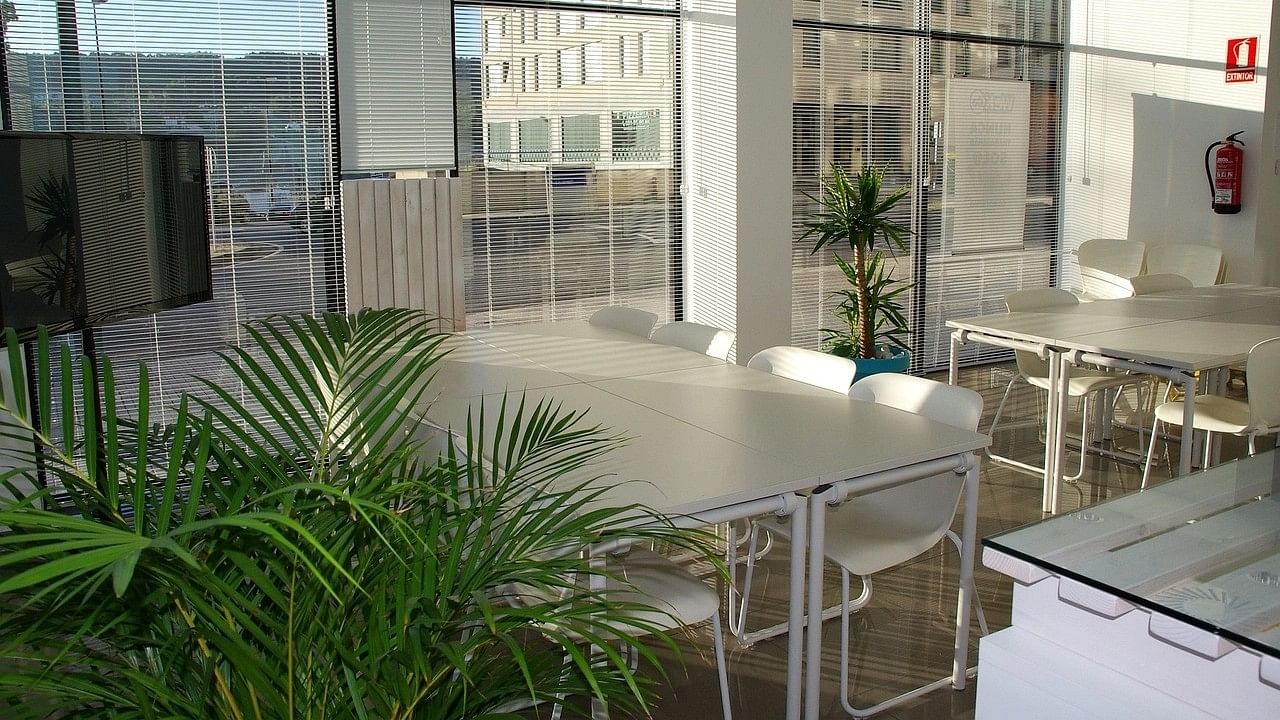
Representative image of office space.
Credit: Pixabay Photo
New Delhi: Net office space leasing across seven major cities is likely to remain stable at 37-39 million sq ft during this calendar year, despite global economic concerns and is expected to rise 20 per cent next year, according to JLL.
Net absorption, or leasing of office space, stood at 37.99 million sq ft during the 2022 calendar year in seven major cities -- Delhi-NCR, Mumbai, Chennai, Kolkata, Bengaluru, Hyderabad, and Pune.
The office space demand hit a record at 47.92 million sq ft in 2019, but declined sharply to 25.38 million sq ft in 2020 and 26.03 million sq ft in 2021, according to real estate consultant JLL India data.
The consultant said the office sector has seen sustained growth in demand this year despite global sluggishness and is poised to achieve the next level of growth in 2024.
"Net absorption from January-September 2023 was 26 million sq ft, which is 68 per cent of the 2022 full-year number. In 2023, net absorption in the office market is expected to be at par with 2022, to close at 37-39 million sq ft," JLL said.
The office markets' performance is a testament to the strong fundamentals of demand and the absence of any lasting effects of the global headwinds.
In 2024, net absorption is further expected to increase 20-22 per cent to touch 45-47 million sq ft.
"The office space in India's top seven markets is expected to increase to over 800 million sq ft by the fourth quarter of 2023, up from the current 792.8 million sq ft as of September 2023," Rahul Arora, Head, Office Leasing Advisory and Retail Services, India, JLL, said.
With sustained demand for flexible and managed enterprise services, JLL said flexible space leasing in 2023 is expected to surpass the previous peak achieved in 2022 to close at around 145,000 seats.
Amal Mishra, Co-founder of Bengaluru-based co-working firm UrbanVault, said, "There is a visible shift towards customised and managed flexible spaces, where companies are prioritising solutions that enhance overall work experiences, while minimising the complexities associated with facility management."
This trend underscores a strategic adaptation to a dynamic work environment, emphasising the importance of tailored and efficiently managed flexible office spaces in meeting the evolving needs of corporates, he added.